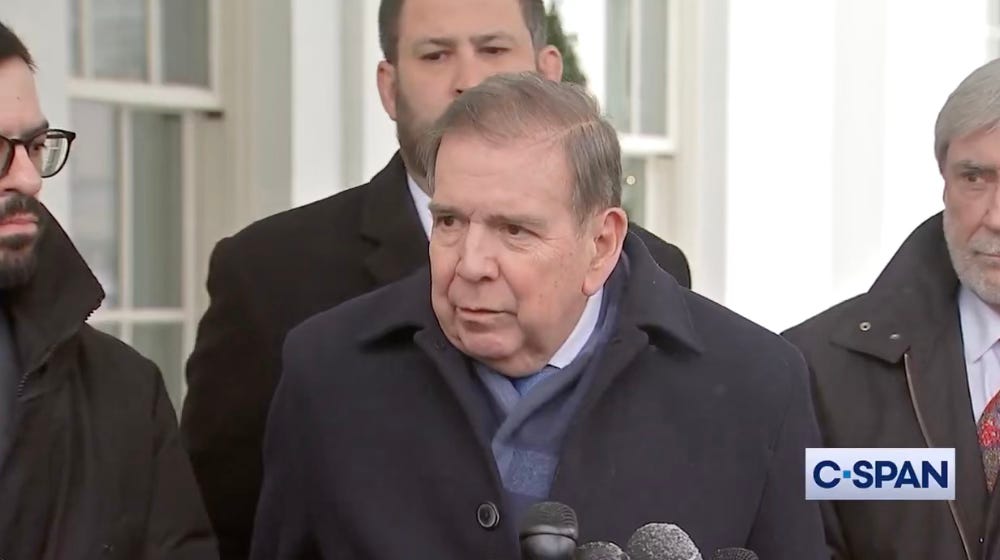Venezuelan Opposition Leader Edmundo González's Son-in-Law Kidnapped, A Day Prior to U.S. Talks

At the eve of the presidential transfer of power set to take place this Friday in the nation of Venezuela, the Maduro regime kidnapped the son-in-law of opposition leader Edmundo González.
“At this time he is missing,” he posted on X. “This morning my son-in-law Rafael Tudares was kidnapped. Rafael was heading to my grandchildren's school, ages 7 and 6, in Caracas, to drop them off for the start of classes, and he was intercepted by hooded men dressed in black.”
The unfolding of events took place a day after Mr.González was at the White House shaking hands with President Biden at the Oval Office, to discuss shared efforts in handing back democracy to millions of Venezuelans who fled the country.
On Monday, the Maduro regime put out a statement claiming the efforts of both leaders to engage in conversations about changing the statehood of Venezuela, as “a flagrant violation of international law and a crude attempt to perpetuate imperialist interference in Latin America.”
Mr.González, a former diplomat, represented Venezuela’s Unitary Platform opposition coalition in the recent presidential election which took place last year on July 28.
The streets surrounding the capital of Venezuela, Caracas have “intensified” and “more military presence under the the regime orders is being seen,” according to sources affiliated with members of political prisoners detained by the regime.
The Maduro government has imposed a $100,000 bounty on Mr. González and he would likely be arrested if he returned.
Opposition leader Maria Corina Machado took to X, encouraging Venezuelans to prepare for the next coming days, “These are the signs. All together as a family, like a swollen river…that will overflow until the end.”
The campaign is called “Gloria Al Bravo Pueblo,” the Venezuelan national anthem, and is set to take place on Jan. 9 at 10 am, all throughout Venezuela—an act to gain back the soul of the nation.
The U.S. Department of State has kept its stance that Venezuela is a high-risk zone, and travel to the Latin American country is at high risk due to “wrongful detentions, terrorism, kidnapping, the arbitrary enforcement of local laws, crime, civil unrest, and poor health infrastructure,” as previously reported.
Based on the organization’s publicly available database, the total number of arrests of political prisoners is around 17,900 since 2014, internal sources contend that the number is much higher and is not disclosed by the regime.
The U.S. State Department called the action taken by the regime an attempt to “intimidate Venezuela’s democratic opposition.”
With just three days left until the official transfer of power takes place, the question remains whether the regime will relinquish its authoritarian military grasp on the people of Venezuela.



